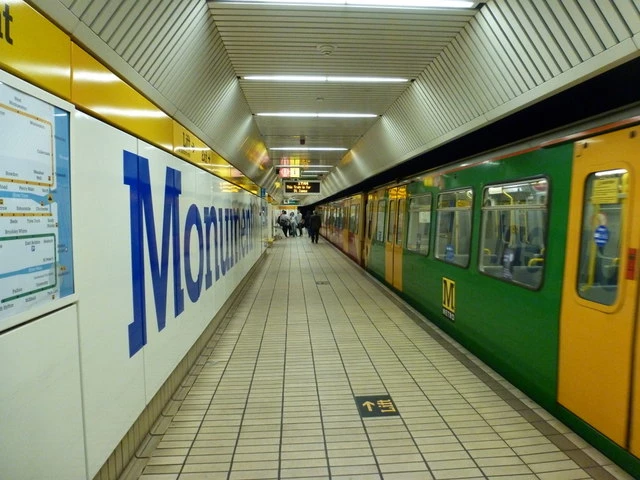
Nexus announces plan to improve digital connectivity on Tyne and Wear Metro
Nexus today confirmed plans to improve digital connectivity on Tyne and Wear Metro, with the aim of creating a seamless 4G or 5G signal across the whole network.
This follows research which shows that Metro customers want a better digital experience, from when they walk from the street onto a station platform and right through their journey.
Nexus, the public body which owns and manages Metro, will be focusing investment on boosting commercial mobile network strength across the Metro system, rather than putting Wi-Fi on board trains as this is expensive to provide and would be used by very few customers.
Metro customers already benefit from 4G and 5G connectivity through their phone contracts on much of the system’s 60 stations and the lines in between. Under its plan Nexus is engaging with the major network providers to build improved connectivity in those ‘not spot’ areas where the signal is weaker, including tunnels and cuttings and lines near the coast.
Mobile provider EE has offered 4G connectivity in Metro tunnels beneath central Newcastle and Gateshead since 2019 though plans to get other mobile networks on board was held up during the Covid-19 pandemic.
Customer services director, Huw Lewis, said: “We want customers to enjoy unbroken 4G and 5G connectivity on smart phones as they travel around the region, whether that is while getting to a station, waiting on the platform, or travelling on trains.
“We’ve done research with customers which shows that people now value a good connection for their phone, using their own data, rather than wanting to log in to a Wi-Fi service provided by a train operator, particularly when most people travel on Metro for only a short period.
“This is not surprising because data is cheap and the signal from masts in and around railways is much stronger than it was a few years ago – in fact research a few years ago by comparable operators showed as few as 4% to 5% of customers choose to use on-train Wi-Fi.”
He added: “On-train Wi-Fi is expensive to provide and maintain, and itself relies on local masts for connectivity, and we now feel it offers little benefit to customers compared to the high cost of building then maintaining a bespoke system.
“There are challenges an independent survey across the Metro network identified our customers will see strong connectivity on a train across most of the network, but there are a number of small stretches where it could be much better.”
“What we are doing now is engaging with the major network providers to build a plan to improve connectivity steadily for all mobile customers, and while this will take time, we are confident we will see a steady improvement as this programme develops.”
By Mark Adair – Correspondent, Bdaily
- Add me on LinkedIn and Twitter to keep up to date
- And follow Bdaily on Facebook, Twitter and LinkedIn
- Submit press releases to editor@bdaily.co.uk for consideration.
Looking to promote your product/service to SME businesses in your region? Find out how Bdaily can help →
Enjoy the read? Get Bdaily delivered.
Sign up to receive our daily bulletin, sent to your inbox, for free.








 Raising the bar to boost North East growth
Raising the bar to boost North East growth
 Navigating the messy middle of business growth
Navigating the messy middle of business growth
 We must make it easier to hire young people
We must make it easier to hire young people
 Why community-based care is key to NHS' future
Why community-based care is key to NHS' future
 Culture, confidence and creativity in the North East
Culture, confidence and creativity in the North East
 Putting in the groundwork to boost skills
Putting in the groundwork to boost skills
 £100,000 milestone drives forward STEM work
£100,000 milestone drives forward STEM work
 Restoring confidence for the economic road ahead
Restoring confidence for the economic road ahead
 Ready to scale? Buy-and-build offers opportunity
Ready to scale? Buy-and-build offers opportunity
 When will our regional economy grow?
When will our regional economy grow?
 Creating a thriving North East construction sector
Creating a thriving North East construction sector
 Why investors are still backing the North East
Why investors are still backing the North East